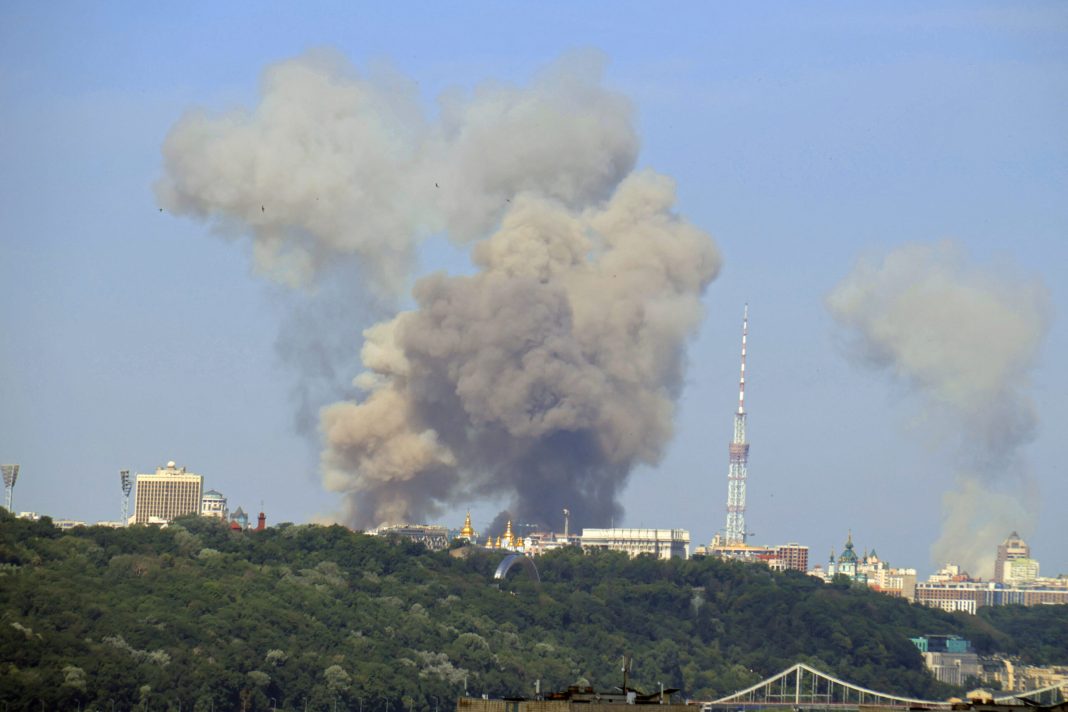Russia’s military launched a significant offensive targeting Ukraine’s energy infrastructure on Thursday, prompting emergency power outages as the country braced for freezing temperatures. This latest assault follows a pattern of aggressive strikes against Ukraine’s energy grid that has been intensifying since Russia’s invasion in February 2022. Ukrainian officials have condemned these attacks, labeling them as acts of terror aimed at plunging cities into darkness and depriving civilians of heat during the harsh winter months.
Speaking to the media, Ukraine’s Energy Minister German Galushchenko reported that the energy infrastructure was experiencing a “massive enemy attack,” which coincided with a nationwide air alert warning of incoming missile threats. Reports from the Ukrainian air force indicated that a series of Russian cruise missiles and attack drones were targeting various cities, including the capital, Kyiv, as well as Kharkiv and Odesa, a key port on the Black Sea.
In response to the escalating situation, the national power grid operator, Ukrenergo, was forced to implement emergency power cuts across several regions, including Kyiv, Odesa, Dnipro, and Donetsk, as temperatures plummeted to near freezing. Galushchenko indicated that the ongoing strikes necessitated immediate action to manage the situation.
The relentless wave of attacks aligns with concerns raised by Ukrainian officials, such as Andriy Yermak, Chief of Staff to President Volodymyr Zelensky, who criticized Russia for continuing its tactics of terror by stockpiling missiles for strikes against Ukrainian infrastructure, especially during the winter. Meanwhile, senior United Nations officials have warned that ongoing Russian strikes could make this winter particularly severe for Ukrainian civilians.
In retaliation for previous Ukrainian strikes on its territory, Russia announced its preparation for a counter-offensive, reportedly including the deployment of US-supplied ATACMS missiles. Ukraine, having recently received approval from Washington to utilize these missiles against targets within Russia, has conducted several attacks on border regions, prompting a strong response from Moscow, including the deployment of a never-before-seen hypersonic ballistic missile against Dnipro.
In a separate incident, Russia’s defense ministry claimed to have intercepted 25 Ukrainian drones overnight, with 14 of those being downed over the Krasnodar region, situated near the annexed Crimean peninsula. There were reports of injuries resulting from falling debris in Slavyansk-on-Kuban, highlighting the spillover effects of the conflict.
The escalation of missile attacks occurred closely following the announcement of a new US envoy to Ukraine. President-elect Donald Trump named retired General Keith Kellogg to the role, emphasizing a mission to end the ongoing conflict. Trump, who has previously expressed intentions to mediate a ceasefire, has raised concerns in Kyiv about the potential for the US to pressure Ukraine into territorial concessions.
The Biden administration, in its waning days, has suggested lowering the minimum conscription age to 18 in order to address severe manpower shortages faced by Ukrainian forces along the lengthy front line, particularly as Russian troops continue to make advancements in the east, aided by superior numbers and ammunition supplies. The situation remains tense as both sides brace for further developments amid the harsh winter conditions.





